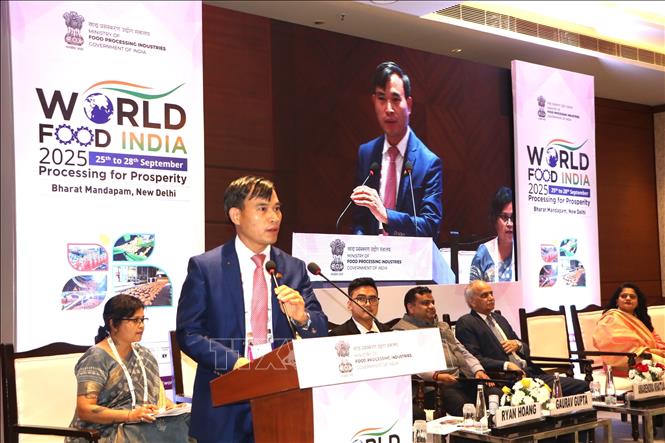
The discussion focused on finding solutions to promote green production, expand the application of biotechnology, encourage cross-border investment and shape an environmentally friendly food processing industry.
In his opening remarks, Commercial Counselor of the Embassy of Vietnam in India, Mr. Bui Trung Thuong, emphasized that this is the time for countries and businesses to strengthen cooperation to develop sustainable production models and reduce emissions. He said that this topic is also the focus of WFI 2025 - where the business community and international organizations share experiences, seek opportunities to connect and create new initiatives to contribute to the global supply chain.
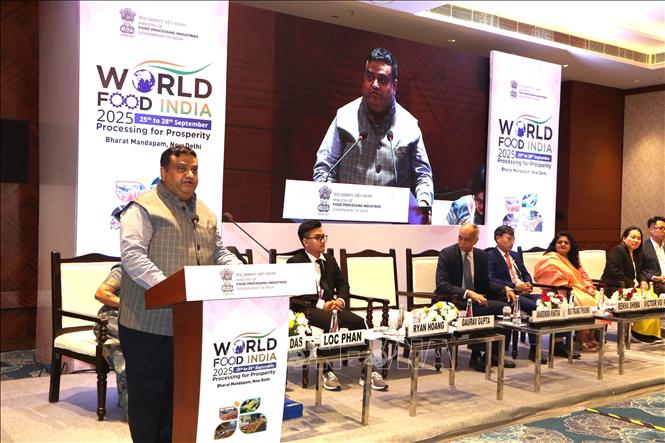
At the discussion session, Vietnamese and Indian speakers presented many studies and practical models on food processing associated with innovation, in line with international programs such as carbon balance commitment, Sustainable Development Goals (SDGs) and building responsible value chains. Business representatives from both countries also introduced cooperation directions in technology transfer, sustainable packaging, renewable energy application and bilateral supply chain development, and proposed a mechanism for regular policy dialogue between the government , associations and businesses.
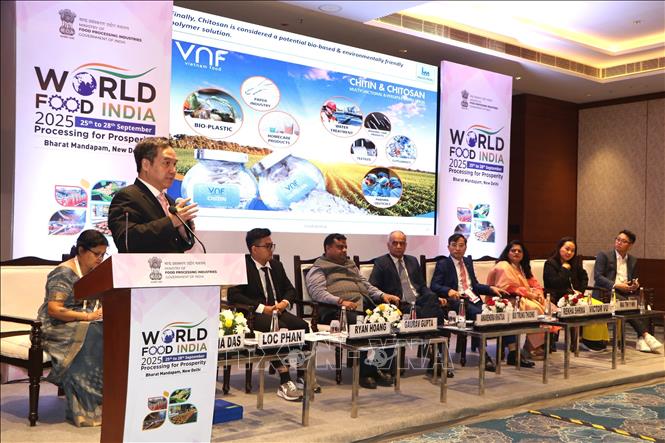
Notably, Mr. Phan Thanh Loc - Founder and Chairman of the Board of Directors of Vietnam Food Joint Stock Company (VNF) - made a strong impression with his presentation "Turning waste into wealth". He introduced a model of recycling shrimp by-products in the direction of a circular economy , helping to reduce greenhouse gas emissions, while creating a new value chain for the seafood industry and many other fields. Mr. Phan Thanh Loc emphasized that both Vietnam and India - the two leading shrimp exporting countries in the world - are facing the problem of processing hundreds of thousands of tons of shrimp heads and shells each year. The VNF model with the principle of "creating new value for the shrimp industry and other industries" not only opens up a sustainable direction, but also helps reduce the risk of being subject to carbon tax when exporting.
Speaking to VNA reporters, Mr. Phan Thanh Loc said that turning by-products into high-value raw materials depends mainly on science and technology. VNF has spent 11 years researching to perfect the process and is ready to cooperate with Indian partners to shorten this process. He also pointed out that India currently does not have a comprehensive solution to handle shrimp by-products that both optimizes value and reduces environmental pollution.
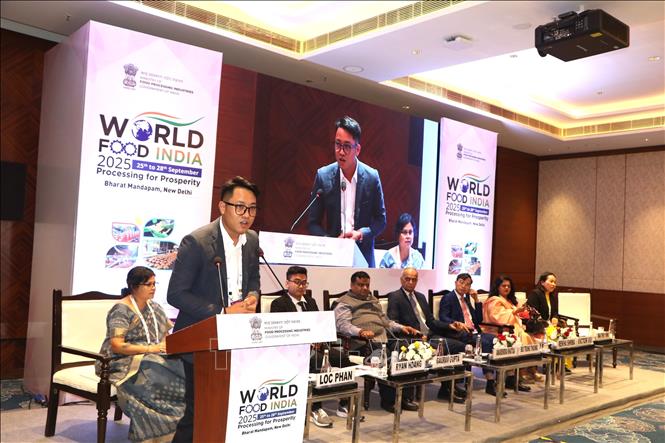
Similarities in status and challenges in the food processing industry show that Vietnam-India cooperation has great potential. In the context of the world's increasing concern about climate change, food security and responsible consumption, initiatives from the Discussion Session and WFI 2025 are expected to promote bilateral relations, encourage investment and inspire collaborative solutions to build a more sustainable and resilient food ecosystem in Asia as well as globally.
Source: https://baotintuc.vn/kinh-te/viet-nam-an-do-chia-se-mo-hinh-che-bien-xanh-20250927202124121.htm


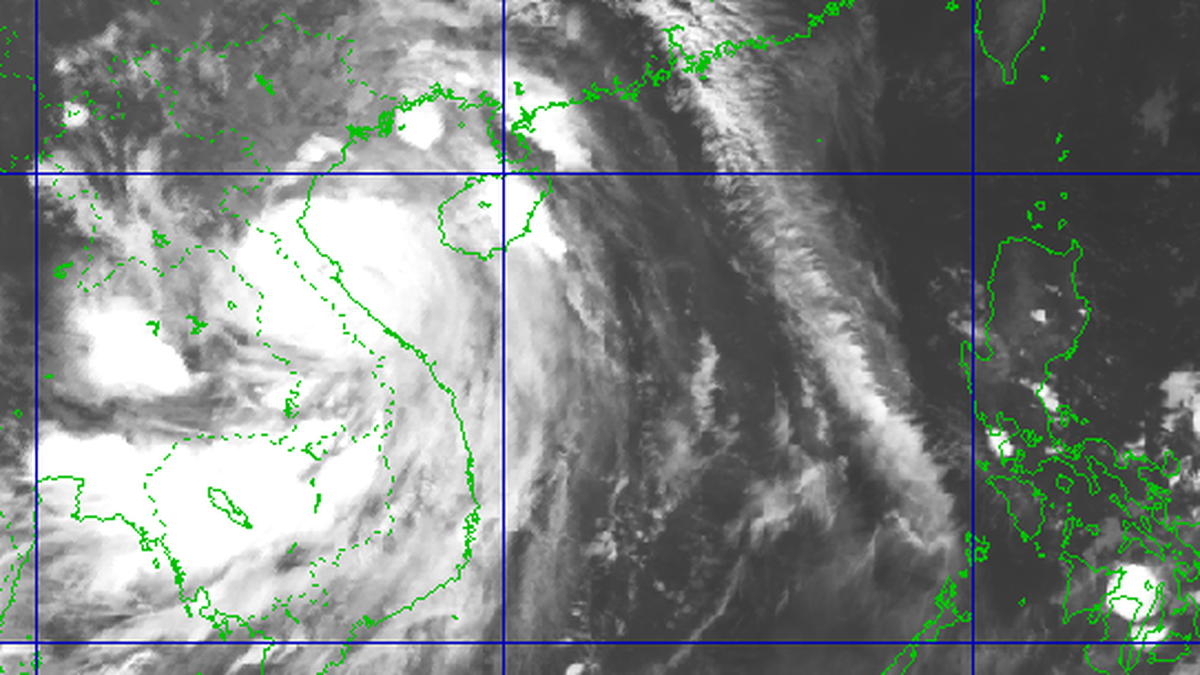
![[Photo] The 4th meeting of the Inter-Parliamentary Cooperation Committee between the National Assembly of Vietnam and the State Duma of Russia](https://vphoto.vietnam.vn/thumb/1200x675/vietnam/resource/IMAGE/2025/9/28/9f9e84a38675449aa9c08b391e153183)
![[Photo] Joy on the new Phong Chau bridge](https://vphoto.vietnam.vn/thumb/1200x675/vietnam/resource/IMAGE/2025/9/28/b00322b29c8043fbb8b6844fdd6c78ea)
![[Photo] High-ranking delegation of the Russian State Duma visits President Ho Chi Minh's Mausoleum](https://vphoto.vietnam.vn/thumb/1200x675/vietnam/resource/IMAGE/2025/9/28/c6dfd505d79b460a93752e48882e8f7e)





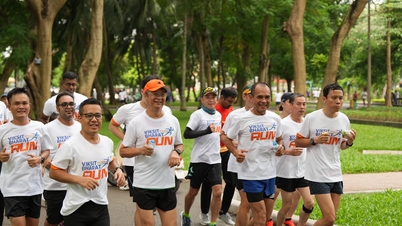

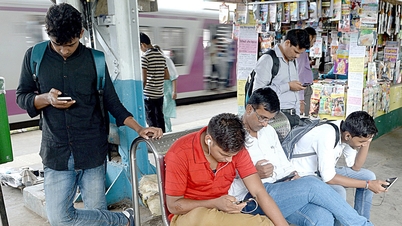







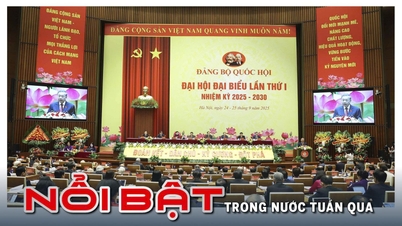
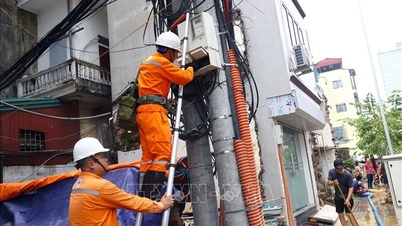
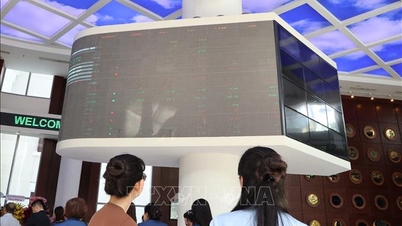

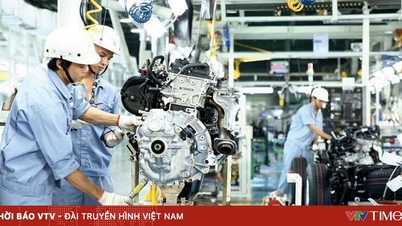






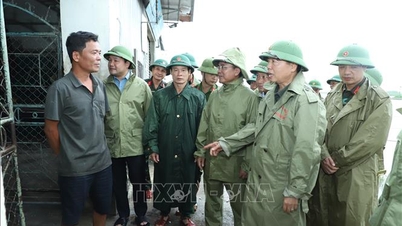

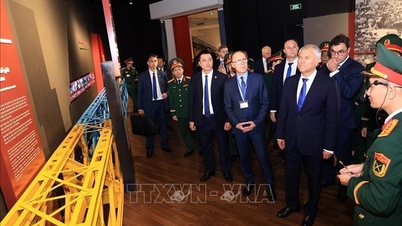
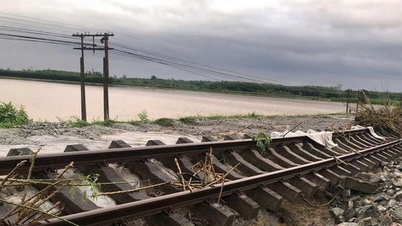
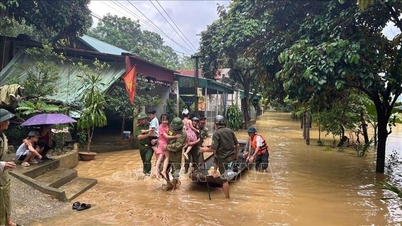




























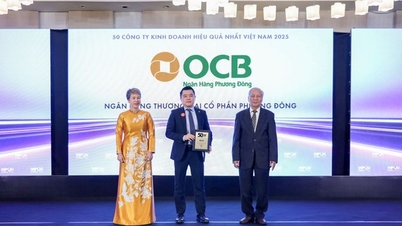








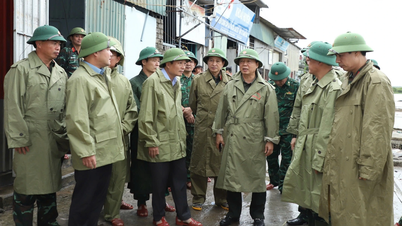








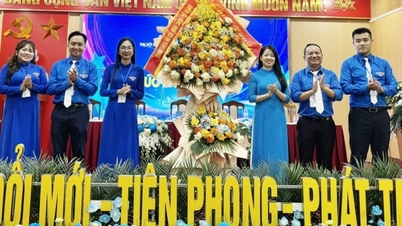
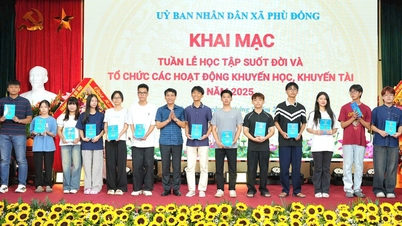
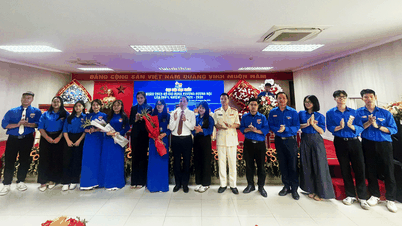
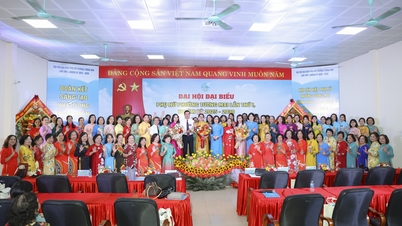















Comment (0)